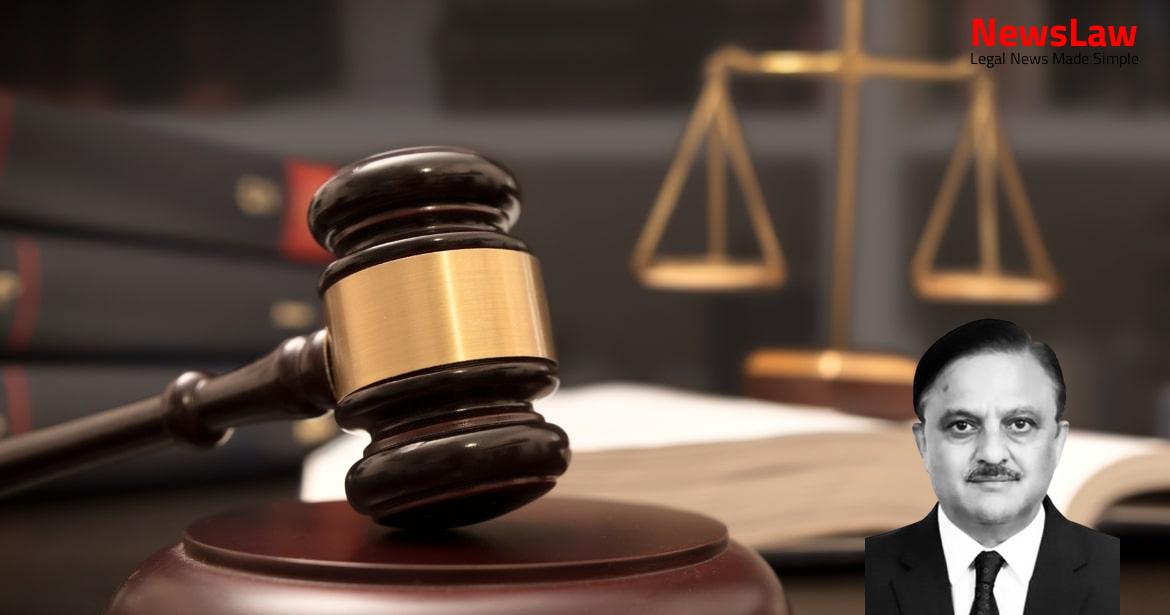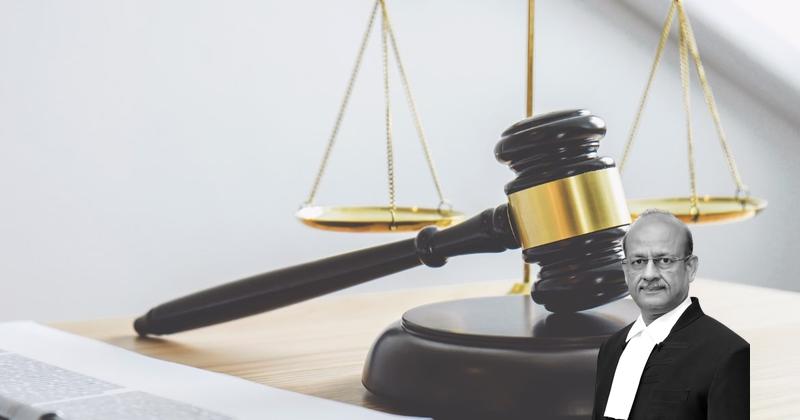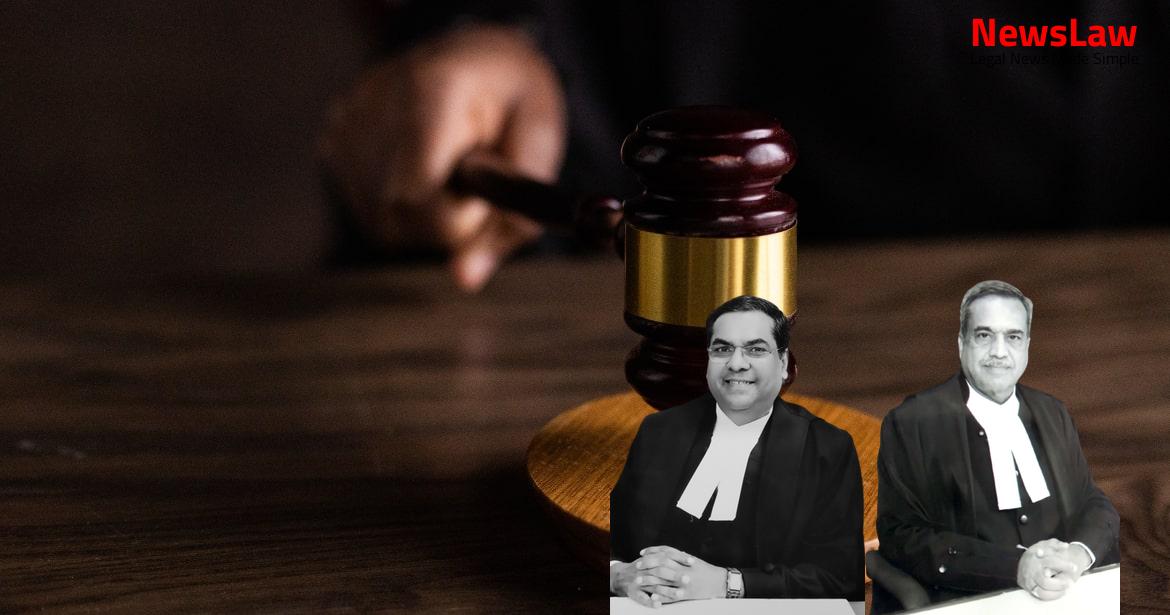When the citizens of Mumbai were about to breathe a sigh of relief, there were serial bomb blasts in various parts of the city on 12 March 1993. The Terms of Reference of the Commission were as under: “(i)
Also Read: https://newslaw.in/supreme-court/selection-and-appointment-of-judicial-officers-in-himachal-pradesh/
The circumstances, events and immediate causes of the incidents which occurred in the Bombay Police Commissionerate area in December 1992 on or after the 6 December 1992 and, again in January 1993, on or after the 6 January 1993; Whether any individual or group of individuals or any other organizations, were responsible for such events and circumstances; The adequacy or otherwise of the precautionary and preventive measures, taken by the Police preceding the aforesaid incidents; Whether the steps taken by the Police in controlling the riots were adequate and proper and whether the Police firing resulting in deaths was justified or not; and The measures, long and short term, which are required to be taken by the administration to avoid recurrence of such incidents, to secure communal harmony and also to suggest improvements in law and order machinery.” As noted in the report of the Commission, the then Hon’ble Prime Minister requested the Chief Minister of Maharashtra to revive the Commission and that is how it was revived by the notification dated 28 May 1996. Declare that an enquiry conducted under the Commission of Enquiry Act, 1952, would tantamount to an Inquiry within the meaning of Article 311 [2] of the Constitution of India; ii.
Issue a Writ, Direction or Order in the nature of Mandamus and or like nature directing the Respondent-State of Maharashtra that SUMMARY cases be re-opened and action taken in accordance with the recommendations of the Sri Krishna Commission Report; v. The investigation was carried out in an arbitrary and casual manner; There was a delay in the disposal of criminal cases concerning riot-related offences; There was a lot of political interference in the functioning of the Police machinery; The commission concluded that the Police officials named in paragraph 1.30 of Volume-I of its report, were found actively participating in riots, communal incidents and incidents of looting, arson, etc.
The Commission recommended that strict standards of physical fitness be enforced; and The Commission recommended improvement of conditions of work of the Police and also recommended that proper housing facilities be provided to the police. The State Government has decided to pay compensation to the victims of the riots and violence; iv. The affidavits filed on the side of the petitioner make a grievance about the failure of the State Government to implement the recommendations of the Commission and also the failure to bring the offenders to book.
He would, therefore, submit that the compensation deserves to be enhanced substantially and a direction be issued to the State Government to ensure that compensation is paid to every eligible victim/ his or her heirs. The recommendations of a Commission appointed under the 1952 Act cannot bind the Government.
Firstly, we will deal with the conduct of disciplinary proceedings against the erring police officials as recommended by the Commission. The complainants/victims filed revision applications against orders of discharge dated 16 April 2003 of two officials. Out of the said nine police officials, against whom minor penalties were imposed, eight officials have already retired from service.
The outcome of these cases can be summarized as under: Convicted Acquitted Abated Cases found unrelated to riots Pending Cases in Sessions Court Cases on dormant files. Shri Colin Gonsalves, the learned senior counsel made a grievance that the victims of the offences ought to have been provided legal aid by the State and the District Legal Services Authorities established under the Legal Services Authorities Act, 1987 (for short, ‘the 1987 Act’) for challenging the orders of acquittal. Criteria for giving legal services — Every person who has to file or defend a case shall be entitled to legal services under this Act if that person is— (a) a member of a Scheduled Caste or Scheduled Tribe; (b) a victim of trafficking in human beings or begar as referred to in article 23 of the Constitution; (c) a woman or a child; (d) a person with disability as defined in clause (i) of section 2 of the Persons with Disabilities (Equal Opportunities, Protection of Rights and Full Participation) Act, 1995 (1 of 1996); (e) a person under circumstances of underserved want such as being a victim of a mass disaster, ethnic, violence, caste atrocity, flood, drought, earthquake or industrial disaster; or (f) an industrial workman; or (g) in custody, including custody in a protective home within the meaning of clause (g) of section 2 of the Immoral Traffic (Prevention) Act, 1956 (104 of 1956), or in a juvenile home within the meaning of clause (j) of section 2 of the Juvenile Justice Act, 1986 (53 of 1986), or in a psychiatric hospital or psychiatric nursing home within the meaning of clause (g) of The meaning of the adjective “ethnic” according to Merriam-Webster dictionary is “ of or relating to large groups of people classed according to common racial, national, tribal, religious, linguistic, or cultural origin or background”. Hence, on an application being made by the victims of the offence or their legal heirs, legal services could have been provided to them by appointing advocates, who could have assisted the Criminal Courts in terms of sub-Section (2) of Section 301 of the Code of Criminal Procedure, 1973 (for short, ‘Cr.P.C.’) during the course of trials.
Unfortunately, if such situations arise, we are sure that the Legal Services Authorities at various levels will come to the rescue of the victims of violence and render legal services to them, keeping in mind the spirit of Section 12 of the 1987 Act. In terms of the directions of the Committee, reinvestigation was carried out in 112 cases under the supervision of the Officers of the rank of Deputy Commissioner of Police. The Commission suggested that various steps should be taken to boost the morale of the Police Force, such as providing proper housing facilities to them, reducing political interference in the day-to-day functioning of the Police Force, etc.
All the aspects of life which make a person live with human dignity, are covered by the word ‘life’ used in Article 21 of the Constitution of India.
There was a failure on the part of the State Government to maintain law and order and to protect the rights of the people guaranteed under Article 21 of the Constitution of India. Nearly five and a half years after the incidents of riots, the Government Resolution dated 22 July 1998 (the second Government Resolution) was issued, providing for giving compensation of Rs.2 Lakhs to the legal heirs of the missing persons. The response of the State Government in the affidavit of Shri Mangesh Manjabhau Shinde reads thus: “(i) (ii) Whether any compensation has been paid to the legal heirs of the persons who have been found missing; Reply- The total compensation Rs.1,19,00,000/- paid to the legal heirs of the 60 missing persons.
A true copy of the Government Resolution dated 22.07.1998 is annexed herewith and marked as Annexure-R-3. Reply – After the guidelines issued by GR dated 08/07/1993 and GR dated 22/07/1998, the compensation was paid for over the period from year 1992 to 2010 after thorough scrutiny of the cases of compensation as per the GR norms, from time to time. As regards the family members of remaining 108 missing persons, compensation was not paid for various reasons, such as, the persons concerned were not found, their residential addresses were not found, undertakings were not submitted by them etc. The Committee shall monitor the efforts made by the State Government to trace the family members of missing persons, whose addresses are not available and also to ensure that those eligible persons who have not made procedural compliances are assisted to make necessary compliance.
Renovation of houses: – For renovation of residential house, along with subsidy of Rs.5,000/- and loan of Rs.10,000/-, a maximum of Rs.15,000/- financial support.
Medical aid for less than 24 hours hospitalization will be Rs.1000/- or the exact expresses of the hospital which will less, will be given as assistance. After examining records, if it is revealed that some of the victims have not been paid compensation, the Committee formed as above, will have to ensure that compensation is paid to the victims in terms of the first Government Resolution by the State Government. Though as per the order dated 30 August 2022, the State Government was expected to give details about the time lag between the date of the incident and the date of payment of compensation, the State Government has avoided to furnish the material particulars and only a vague statement has been made that compensation was paid in terms of both the Government Resolutions between 1992 and 2010.
There is no prayer made for enhancement of compensation in this writ petition of the year 2001.
The State Government shall make all possible efforts to trace the legal heirs/family members of the missing persons. The State Government shall also submit to the Committee the record relating to compensation paid in terms of the Annexure to the First Government Resolution as well as in terms of the second Government Resolution by incorporating the specific dates on which the compensation was actually paid to the persons entitled to it. To those who were paid compensation after the expiry of the period of six months from the date of the applicable Government Resolution, the State Government shall pay interest at the rate of 9% per annum on the amount of the compensation payable from the expiry of the period of six months from the date of the applicable Government Resolution till the date of payment. Both the Government Officers shall coordinate with concerned Departments and ensure that necessary details, as directed by the Committee, are furnished to the Committee within the specified time of two months; viii.
Case Title: SHAKEEL AHMAD Vs. UNION OF INDIA . (2022 INSC 1162)
Case Number: W.P.(C) No.-000182-000182 / 2001



